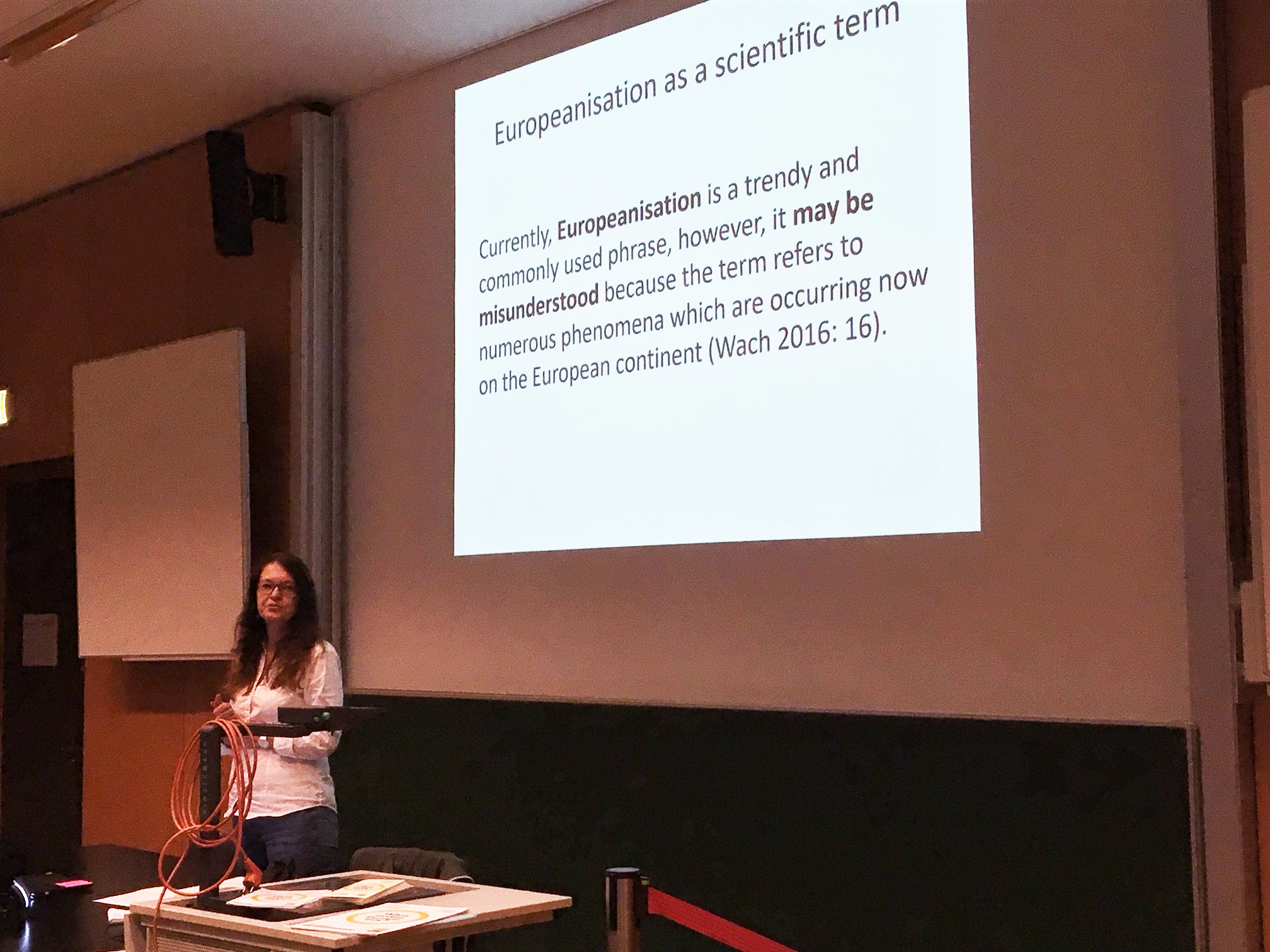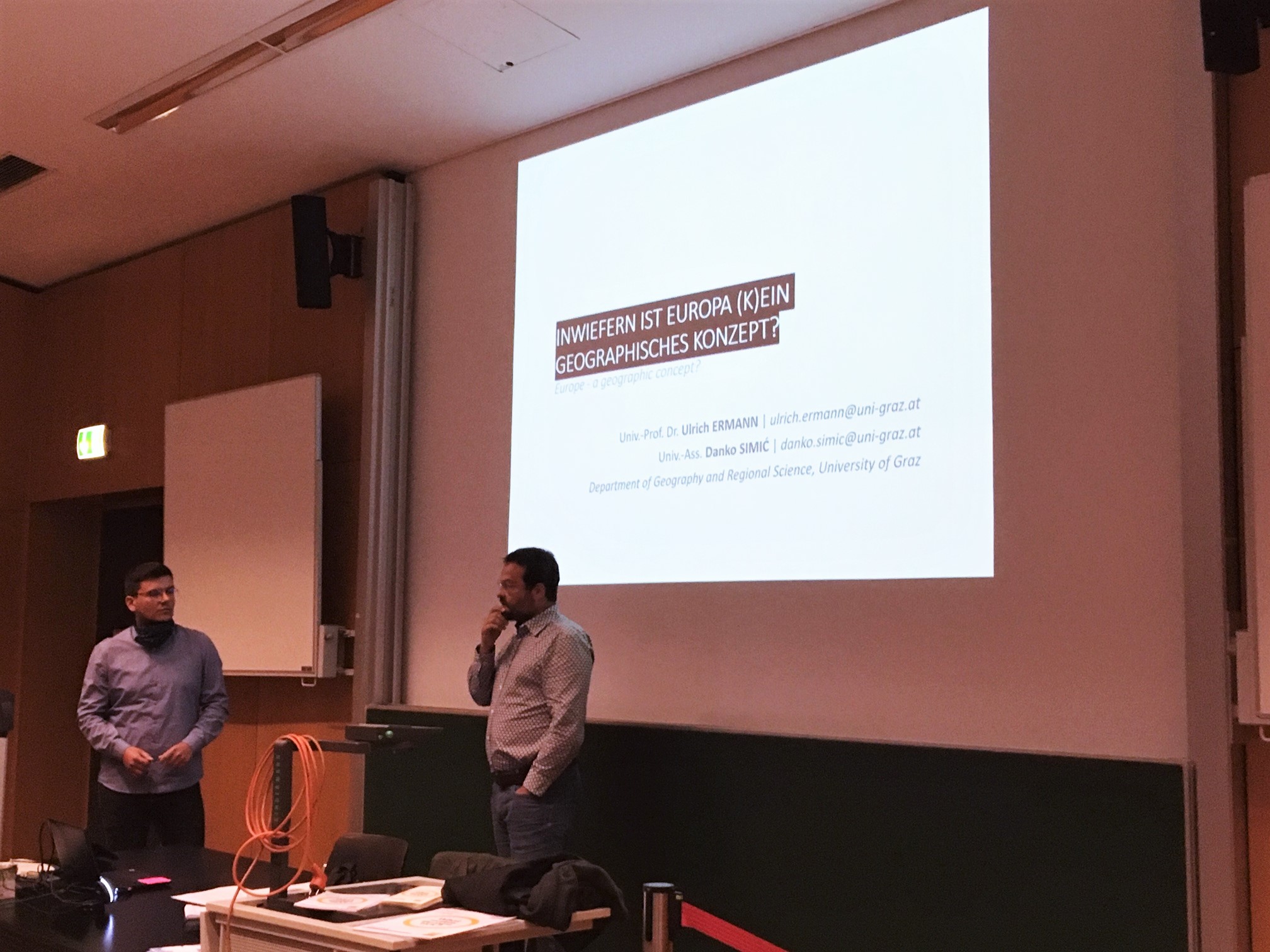On September 28, the members of the field of excellence "Dimensions of Europeanization" gathered for the first official plenary session in the new academic year, and the first formal meeting with physical presence since the COVID-19 outbreak. Besides the planning of upcoming events and enhancing collaborative projects, the meeting served to further develop and discuss concepts of Europeanization, and to stimulate an exchange about the understanding of the term among the researchers and their fields of expertise.
The debate centred particularly around two presentations: Univ.-Prof. Dr. phil. Ulrich Ermann and Danko Simić, BSc MSc, elaborated on Europe as a geographical concept, whereas Dr. Agnieszka Bedkowska-Kopczyk explained Europeanization and Europe from a cognitive-linguistic perspective. The human geographers' approach has shown that Europe is not a static geographical unit, but that there exist "multiple Europes", depending on perception, and it is thus a concept that is steadily constructed and altered by every-day practices of Europeans. Linguistically seen, the terms "Europe" and "Europeanization" likewise evoke different associations among interlocutors in aspiring or young member states. They range from rather territorial definitions (e.g. a continent), to socio-cultural dimensions (values and culture), up to political definitions (such as the EU).
To minimize any health risks for the participants of the session, the meeting was held in a dual way: offering a possibility for virtual attendance.

